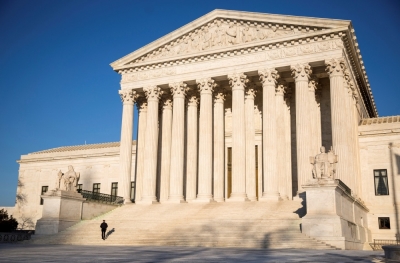Protect Nun's 'Dignity' in Birth Control Mandate Case: 20 States Recall Gay Marriage Reasoning in Supreme Court Brief

Mirroring the Supreme Court reasoning used to implement nationwide gay marriage, 20 states filed a friend-of-the-court brief arguing that the Obama administration is infringing upon the "dignity" of the Little Sisters of the Poor in forcing the nuns to either violate their religious beliefs or pay crippling fines.
A Roman Catholic order known as the Little Sisters of the Poor filed a request to the Supreme Court last month for an exemption from the Health and Human Services Department's preventive services mandate.
Twenty attorneys general argued in the amicus brief that the Little Sisters of the Poor have religious liberty protections meant to protect their dignity.
"… a number of federal courts have now accepted the Executive's invitation to assess the force of a religious conviction. That approach intrudes upon the dignity of adherents' convictions about profound religious concepts involving facilitation or complicity," read the brief.

"It subjects those beliefs to judicial review, as if courts are well situated to determine the substantiality of the reasons of faith animating a believer's desired exercise of religion, as opposed to the substantiality of the governmental burden on that religious exercise."
The "dignity" of individuals was also used as justification for overturning state marriage laws defining marriage as one man and one woman in Justice Anthony Kennedy's recent Obergefell v. Hodges opinion.
In September 2013, the Little Sisters of the Poor filed a suit against HHS over its controversial "preventive services" mandate.
Although the mandate has an exemption for houses of worship under the "religious employers" category, the Little Sisters did not receive an automatic exemption, but got what the Obama administration refers to as an "accommodation."
Under the accommodation, the Little Sisters are not required to cover birth control in their health insurance, but they must certify that they seek the accommodation, which allows employees to get the coverage indirectly.
That certification, the Little Sisters say, makes them complicit in sin. Additionally, the Little Sisters argue that religious freedom is not just for churches, so they should receive the same exemption given to churches.
Last December, the Tenth Circuit heard oral arguments in the Little Sisters' lawsuit and in July ruled against the nuns.
"Although we recognize and respect the sincerity of Plaintiffs' beliefs and arguments, we conclude the accommodation scheme relieves Plaintiffs of their obligations under the Mandate and does not substantially burden their religious exercise under RFRA or infringe upon their First Amendment rights," read the Tenth Circuit's decision.
"Because we determine the [Affordable Care Act] and its implementing regulations do not substantially burden Plaintiffs' religious exercise or violate the Plaintiffs' First Amendment rights, Plaintiffs have not established a likelihood of success on the merits or a likely threat of irreparable harm as required for a preliminary injunction."
In addition to the brief filed by the 20 states attorneys general, several religious and secular groups have also filed amicus briefs on behalf of the Little Sisters.
These include the Ethics and Religious Liberty Commission of the Southern Baptist Convention, the Cato Institute, the Judicial Education Project, the Christian Legal Society, the National Association of Evangelicals, the Christian and Missionary Alliance Foundation, the Alliance Community for Retirement Living, and Crown College.






















